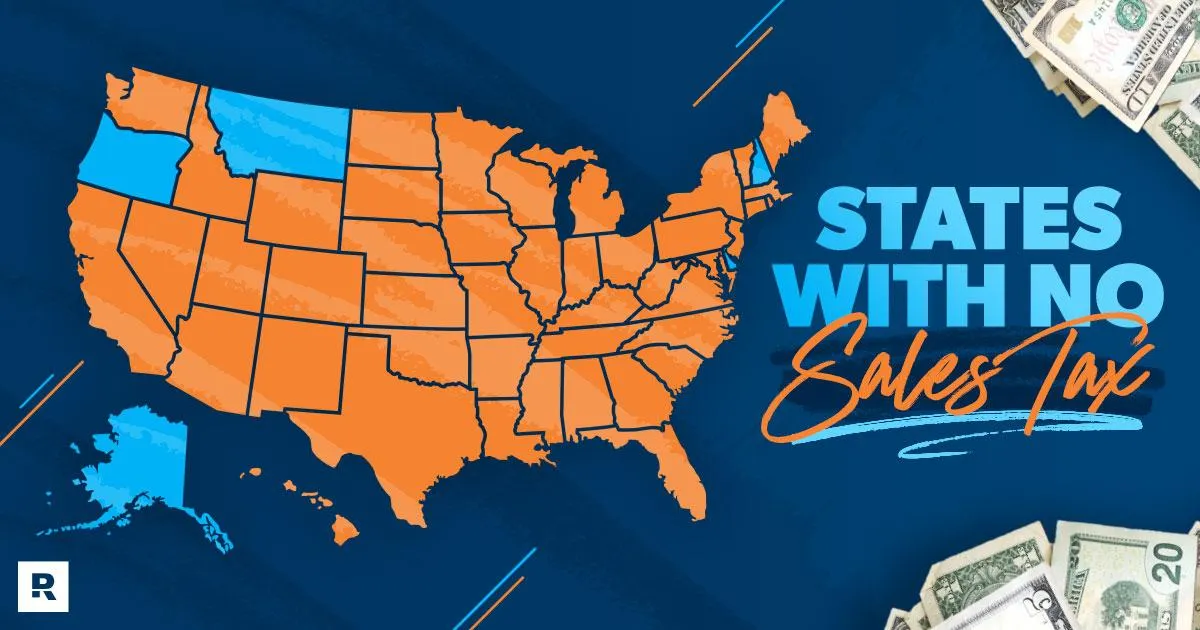WHAT FORE MEMBERS ARE SAYING
" What is currently considered as constituting an alternative or a hedge fund? What do these entities serve as alternatives to, and against what risks do they act as hedges? "
MEMBER LINK
Community | Education | Legacy
FAMILY OFFICE REAL ESTATE INSTITUTE BLOG
The Latest on Family Offices and Real Estate, At the Family Office Real Estate Institute, our commitment to advancing knowledge and expertise in real estate management within family offices extends beyond the classroom.
MEMBER LINK
Community | Education | Legacy

Top 5 No Income Tax States and How That Benefits Real Estate
Real estate investments are influenced by numerous factors, one of which is the tax environment of a particular location. In the United States, some states have adopted a unique approach to taxation by not imposing income tax on their residents. These states are commonly referred to as tax states with no income.
When considering real estate investments, it's crucial to evaluate the tax implications in the chosen location. No personal income tax states present a distinctive advantage as they relieve residents of the burden of paying federal income taxes. This attractive proposition has resulted in several positive outcomes for the real estate market in these states.
Understanding No Income Tax States
No income tax states are jurisdictions where residents are not required to pay state income tax on their personal earnings. While these states still generate revenue through alternative taxes, such as state sales tax rate and property tax, the absence of state income tax significantly impacts residents' financial situations.
Benefits of No Income Tax States for Real Estate
Lower Cost of Living
One of the primary benefits of residing in a no income tax state is the lower overall cost of living. With no state income tax to contend with, individuals can allocate more of their earnings towards housing expenses, making real estate more affordable in these states. This affordability factor contributes to a higher quality of life for residents.
Increased Affordability
The absence of state income tax enables individuals to save a substantial amount of money each year. These savings can be directed towards a down payment on a property or used to invest in real estate ventures. The increased affordability attracts more buyers and investors, leading to a thriving real estate market.
Attracting High-Income Individuals
No income tax states have become magnets for high-income individuals and entrepreneurs seeking to minimize their tax liabilities. The allure of keeping a larger portion of their earnings has resulted in an influx of wealthy individuals moving to these states. This influx of high-income residents stimulates economic growth and has a positive effect on the real estate market.
Boosting Economic Growth
The absence of state income tax fosters economic growth by encouraging business expansion and attracting companies to set up their headquarters in these states. This economic boost creates job opportunities, increases wages, and enhances the overall prosperity of the state. As a result, the demand for real estate in these areas surges, benefiting both homeowners and real estate investors.
Encouraging Real Estate Investments
Investing in real estate can be a lucrative venture, and no income tax states provide an added incentive for investors. The absence of state income taxes allows investors to retain a larger share of their rental income or profits from property sales. This favorable tax environment encourages real estate investments, leading to a robust market and potential returns for investors.
Top 5 No Income Tax States
Several states in the United States have chosen not to impose income tax on their residents. Here are five popular no-personal income taxes states and a brief overview of their real estate markets:
Texas
Texas boasts a thriving real estate market due to its strong economy and population growth. With no state income tax, residents can enjoy a lower cost of living while benefiting from the state's diverse and growing job market. The real estate market in Texas offers a range of opportunities, including residential and commercial properties.
Florida
Florida's warm climate, attractive lifestyle, and lack of state income tax have made it a desirable destination for individuals and retirees. The state's real estate market flourishes with a diverse range of properties, including beachfront condos, suburban homes, and investment properties.
Nevada
Nevada's no income tax policy, coupled with its entertainment hubs like Las Vegas, has made it an appealing state for real estate investment. The market offers a mix of residential properties, luxury condos, and commercial spaces. The growth of the technology sector in cities like Reno has also contributed to the state's real estate boom.
Wyoming
Wyoming's stunning landscapes and absence of state income tax foundation make it an attractive location for those seeking a peaceful and financially favorable lifestyle. The real estate market in Wyoming offers various opportunities, from ranches and vacation homes to commercial properties in growing cities like Cheyenne.
Washington
Washington's vibrant cities, scenic beauty, and no income tax policy have attracted a considerable number of residents. The state's real estate market benefits from this influx, with strong demand for both residential and commercial properties. Seattle, in particular, has witnessed significant growth and offers lucrative investment opportunities.
Real Estate Market Overview in No Income Tax States
In no income tax states, the real estate market experiences specific dynamics that are influenced by the absence of state income tax. Here's an overview of the real estate market in these states:
Residential Properties
The residential real estate market in no income tax states is characterized by increased demand and affordability. The absence of state income tax allows individuals to allocate more funds towards housing expenses, driving up the demand for homes. As a result, property values appreciate, creating favorable conditions for homeowners and investors.
Commercial Properties
No income tax states often attract businesses, resulting in a strong demand for commercial properties. The absence of state income tax is an appealing factor for companies looking to minimize their operational costs and attract top talent. Consequently, the commercial real estate market in these states experiences growth, presenting investment opportunities for individuals and institutions.
Rental Market
The rental market in no income tax states benefits from the affordability and increased demand for housing. With a growing population and attractive business environment, these states experience a high demand for rental properties. Real estate investors can capitalize on this demand and generate steady rental income.
Factors to Consider When Investing in No Income Tax States
While no income tax states offer numerous advantages for real estate investments, several factors should be considered before making a decision:
Job Market
A robust job market is vital for the long-term success of the real estate market. Evaluate the employment opportunities, industry diversification, and stability of the job market in the chosen no income tax state. A thriving job market ensures a consistent demand for housing and supports property value appreciation.
Population Growth
Population growth is a crucial factor to consider when investing in real estate. State with no income that experience steady population growth indicate a positive outlook for the market. Growing populations drive housing demand, rental income potential, and property value appreciation.
Infrastructure and Amenities
Consider the quality of infrastructure and amenities in the chosen no income tax state. Good transportation networks, schools, healthcare facilities, and recreational options contribute to the overall desirability of the area. Locations with well-developed infrastructure tend to attract more residents and investors, ensuring a robust real estate market.
Real Estate Trends
Stay updated on the latest real estate trends in the chosen no income tax state. Analyze factors such as inventory levels, days on market, and price trends. Understanding the market conditions helps identify opportunities and make informed investment decisions.
Challenges and Considerations
While no income tax states offer significant advantages, there are some challenges and considerations to keep in mind:
Alternative Taxes
Although no income tax states don't impose state income tax, they still generate revenue through other means, such as sales tax burden and property tax. Evaluate these alternative tax rates and their potential impact on your financial situation.
Property Taxes
Property taxes can vary significantly from one state to another, even within no individual income taxes state. Research and compare property tax rates, exemptions, and assessments in the specific location you're considering for investment.
Sales Taxes
Since no individual income tax states rely heavily on sales tax revenue, the sales and property taxes rate becomes an important consideration. Higher sales tax rates may affect the cost of living and consumer spending habits, indirectly impacting the real estate market.
Impact on Government Revenue
The absence of state income tax affects government revenue sources. It's important to understand the implications of this on the state's budget and the potential impact it may have on public services and infrastructure development.
FAQs
How do no income tax states generate revenue?
No income tax states rely on alternative revenue sources such as local sales tax, property tax, and other fees to generate revenue for public services and infrastructure development.
Are there any disadvantages to living in a no income tax state?
While no income tax states offer financial advantages, they may have higher sales tax rates, property taxes, or other taxes. It's important to consider these factors when assessing the overall cost of living.
Can individuals save money by relocating to a no income tax state?
Yes, individuals can save a significant amount of money by relocating to a no income tax state since they are not required to pay state income tax on their earnings.
Are all forms of income exempt from taxation in no income tax states?
No income tax states generally exempt personal income from taxation, but other types of income, such as capital gains or investment income, may still be subject to federal and local taxes.
What is the impact of no income tax states on neighboring states?
No income tax states can attract individuals and businesses from neighboring states, leading to population shifts and potential economic impacts on the neighboring regions.
Conclusion
Investing in real estate in no income tax states offers numerous benefits, including lower cost of living, increased affordability, and a thriving real estate market.
These states attract high-income individuals, promote economic growth, and provide favorable excise taxes conditions for real estate investors. However, it's essential to consider factors such as job market stability, population growth, infrastructure, and tax alternatives before making investment decisions in these states.
The Family Office Real Estate Institute (“FORE”) or )the “FORE Institute”) is not affiliated in any way with the University of Denver. Nor are any FORE Institute programs or classes affiliated with the University of Denver. The FORE Institute only uses it facilities for its classes, programs, and events. The University of Denver are the various schools within the University do not sponsor or endorse the FORE Institute, any of its information, products, classes, events, or comments. The FORE Institute declares no affiliation, sponsorship, or partnership with the University of Denver. The FORE Institute stands independently as a for-profit business.
© 2025 Family Office Real Estate Institute









